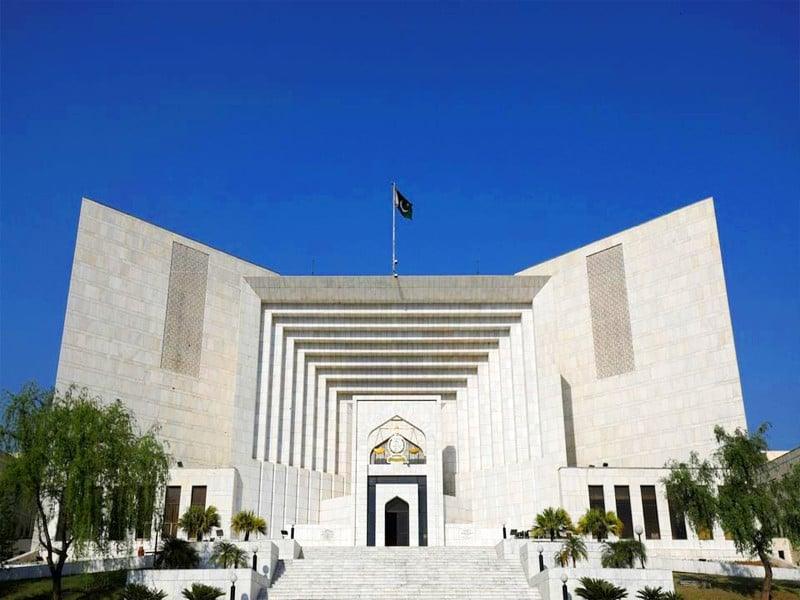Islamabad:
Judge Amicin Khan noted that the abusive use of a law does not justify its cancellation.
“The law on blasphemy was also in a bad start. In order to put an end to this manipulation, it was later decided that an investigation on such a case was carried out by an officer of the grade of director of Superintendent,” said the judge in the direction of a constitutional bench of seven members (CB) of the Supreme Court on Tuesday.
The bench heard the intra-haired calls filed against a Verdict from the Supreme Court which canceled the trial of the rioters on May 9 in the military courts in October 2023. A Five Members bench had also revoked certain sections of the law of the law ‘Pakistani army from 1952 to 1952 to 1952 to 1952 his order.
Discussing against calls, the famous lawyer and head of the PTI Salman Akram Raja said that the decision of the Apex Court in the FB Ali case was in accordance with the 1962 Constitution. In the FB Ali case, a SC bench of five members had authorized the trial of a civilian before a military court.
J. Jamal Mandokhail inquired about the powers of military courts under the 1952 army law to ask if a person who is not one of the soldiers could be tried in a military court only on the basis of his crime. Raja replied that in the FB Ali case, it was declared that the trial of civilians in the military courts is only authorized if the fundamental rights were assured.
Judge Muhammad Ali Mazhar asked how FB Ali, who was himself a civilian, was the short-martial.
Salman Akram Raja replied that the Court had judged that the guarantee of fundamental rights was necessary and that there was no violation of fundamental rights in the trial.
He declared that the FB Ali affair had discussed article 2 (d) (1) of the 1952 law of the army and said that the law introduced by a presidential order was valid, while declaring that It could be examined under fundamental rights.
Judge Mandokhail asked questions about the definition of “Nexus” in the FB Ali case.
Salman Akram Raja replied that he was referring to the incentive to the armed forces. He argued that the FB Ali affair had been interpreted in a way that gave the impression of allowing the creation of distinct courts.
Judge Amicin Khan noted that Salman Akram Raja was arguing the main decision. In response, Raja mentioned that the decision of judge Ayesha Malik was also relevant.
J. Muhammad Ali Mazhar then asked why the 1952 army law sections had been declared zero. Raja said that calls are filed against judgments, not the reasons, and that the courts can modify the reasons while maintaining the operating part of the decision, which occurs regularly.
Judge Mandokhail recalled that in 1968, an order granted legal powers to a Tehsildar in Balutchistan, but when he was challenged before the Supreme Court in the Azizullah Memon case, the court canceled him. He added that the practice continued for 14 years even after the 1973 Constitution.
Raja argued that the law had changed in 1987 with the introduction of article 3 of article 175. He said that if the court had confirmed the decision of judge Ayesha Malik on article 10-A, It would be a victory for his argument.
Likewise, he said that even if the court judged that a court could not be established outside of clause 3 of article 175, he would always support his position.
The court then postponed the hearing until next Monday.




